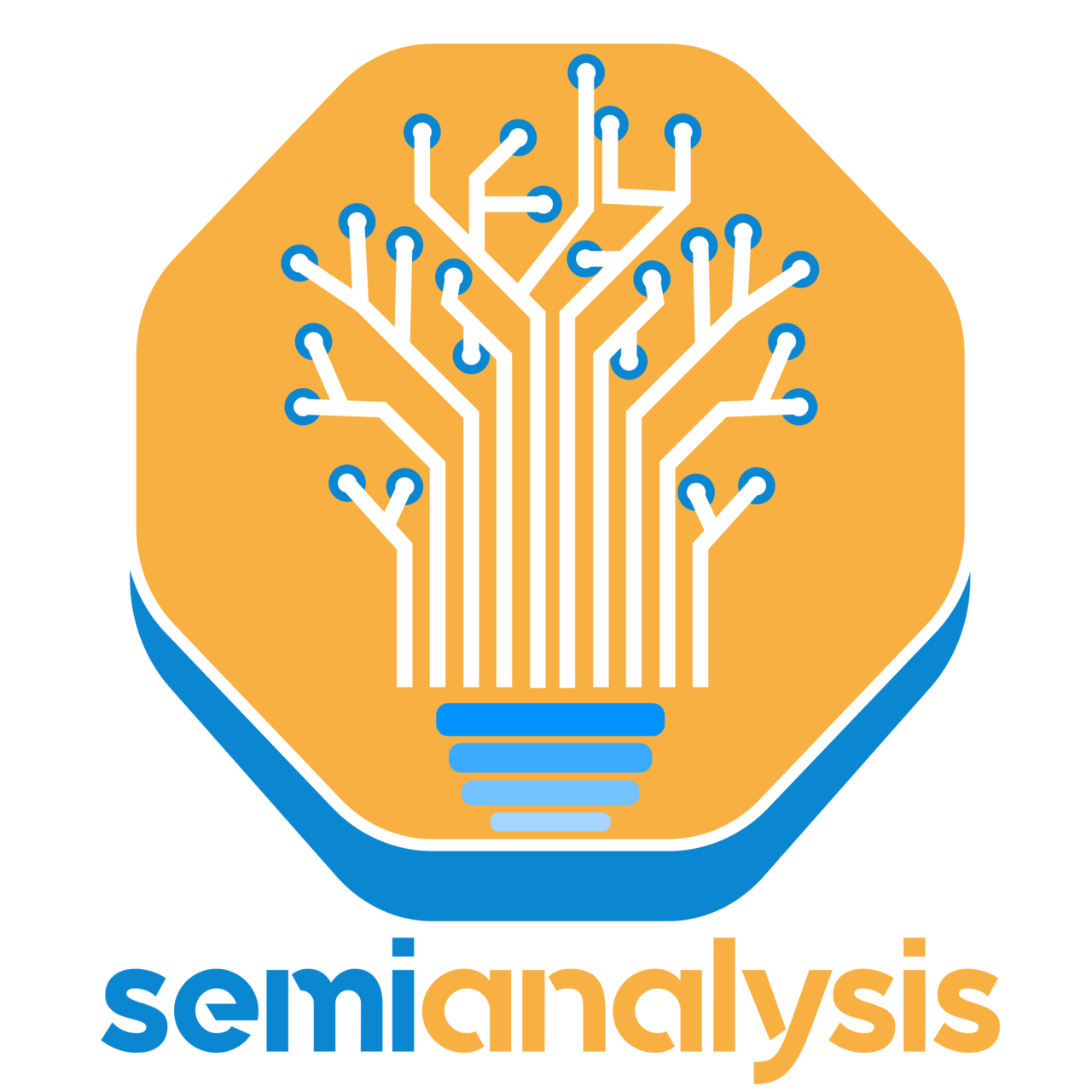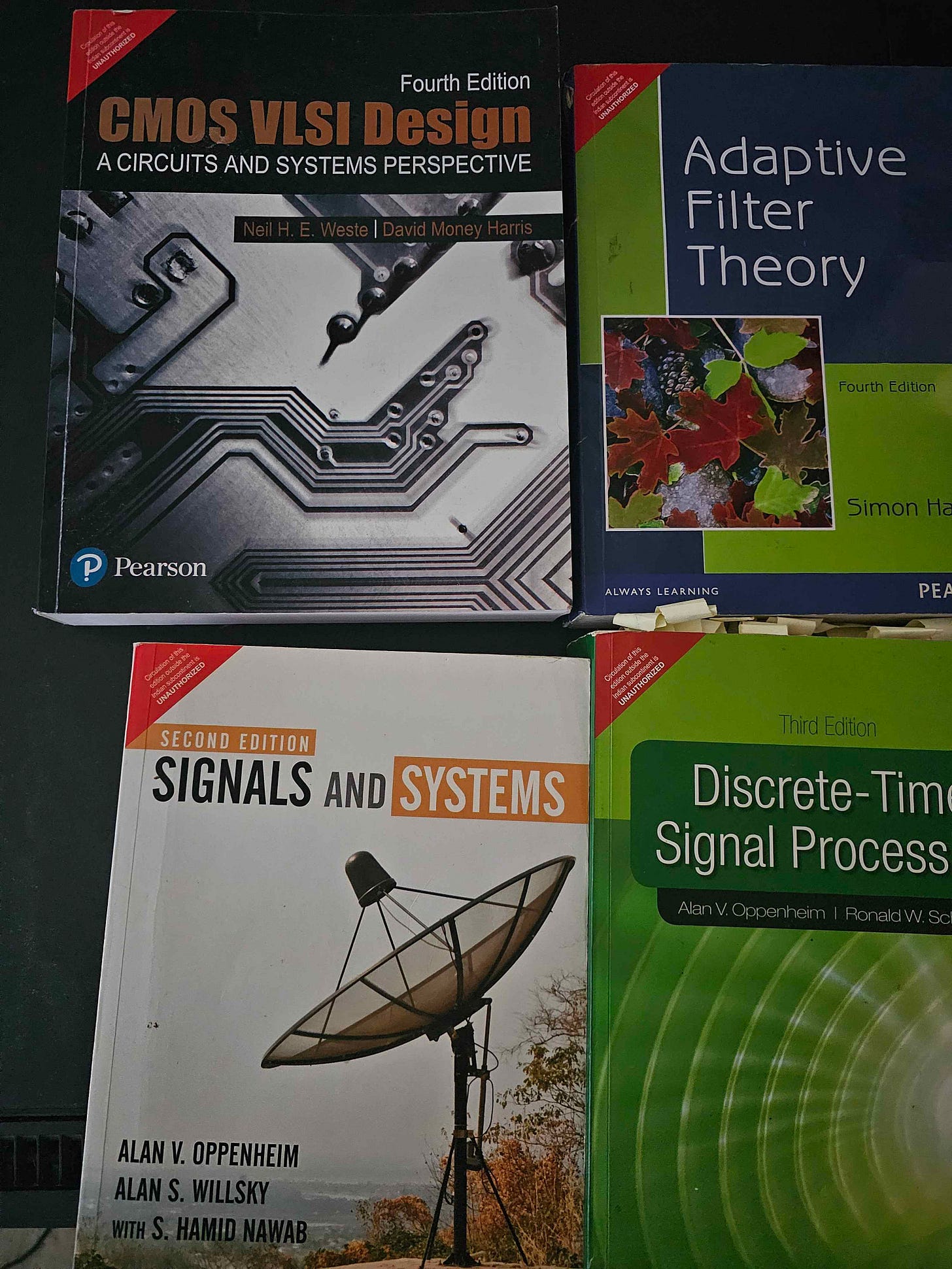Several high-school and undergraduate students have asked me about resources to help them explore the semiconductor industry.
It makes me very happy that you are here!
Here is a list of material loosely organized by category.
Substack
YouTube
Bespoke/Niche Websites
Textbooks
Substack:
Several of you students have expressed concern that SemiAnalysis and Fabricated Knowledge subscriptions are very expensive. Back when I was in college, such expensive subscriptions would be out of the question, so I empathize with the sentiment.
You should still subscribe for free. Some portion of the material published by SemiAnalysis and Fabricated knowledge is not paywalled. Not sure on how much as I have been a paid sub for several years.
I also highly recommend Chips and Cheese, who recently moved to Substack, and Vik’s newsletter.

Subscribe to the Asianometry Newsletter too. In truth, I mostly watch Jon’s work on YouTube and Patreon early access.
Speaking of YouTube…
YouTube:
3blue1brown has a life changing video series on linear algebra.
A geometric understanding of linear algebra is the most important mathematical skill you can build. Important across many engineering disciplines.
Grant from 3blue1brown deserves a Nobel prize for education.
Jon from Asianometry is the best general semiconductor channel on YouTube. Incredible variety while maintaining depth. Here are a few of my favorites.
Yes, the last one is not semis. It is legit my favorite of all time. Super well-made and interesting niche topic.
RIP SpaceJet-chan UwU
Dr. Ian Cutress runs More than Moore and TechTechPotato.
Lots of great technical stuff…
… but the interviews are what makes this channel a true gem.
I highly recommend everyone watches these interviews of Mike Clark and Dr. Ann Kelleher.
For niche analysis for RF and electrical engineering systems, I recommend The Signal Path.
Finally, Gamers Nexus has some excellent factory tours and technical content.
Bespoke/Niche Websites:
AnandTech was great but it is dead now.
Semiengineering is a great resource for the latest industry developments.
This blog I found years ago taught me the basics of CPU architecture and I hope you find it useful too.
https://www.lighterra.com/papers/modernmicroprocessors/
Realworldtech is great but semi-abandoned because David Kanter is busy.
https://www.realworldtech.com/
Estimating die/wafer yield is actually quite easy if you have a little experience. Just punch some educated guesses into this tool.
http://cloud.mooreelite.com/tools/die-yield-calculator/index.html
Textbooks:
First, a warning.
THE ON-CAMPUS BOOKSTORE IS A SCAM.
ONLY BUY THERE AS A LAST RESORT.
You are probably going to get scalped, and I have visual proof.
Interesting how my favorite DSP book is “unauthorized”. How did I get this India-only edition as a lifelong California resident who has never set foot in India?
It turns out, many of the “used — like new” books you can find online are unauthorized imports from India. Buy a new textbook for < $20 in India, ship to western markets, sell for $30-40 as used and make a very high arbitrage profit. That is a big reason why they are so much cheaper than official copies, often 10-20% of list price.
Your campus bookstore is beholden to the publishing cartel. Allways buy online. You might get an “unauthorized” copy but that is not your problem.
Basic Math:
Linear Algebra is the most important field of math in my opinion.
All of the following are good:
Elementary Linear Algebra by Larson/Edwards/Falvo
Linear Algebra: A Geometric Approach by Shifrin and Adams
Elementary Linear Algebra by Anton
A geometric understanding of subspaces, eigenvalues, and linear transformations is what matters. Nobody cares if you can invert a matrix or calculate the determinant by hand.
In addition to these regular textbooks, I highly recommend the Schaum’s Outlines on Linear Algebra by Lipschuitz and Lipson.
Probability/statistics, with a focus on random processes is also critical for many electrical engineering fields.
All of these books will serve you well:
Probability, Random Variables, and Stochastic Processes by Papoulis and Pillai
Probability, Statistics, and Random Processes for Electrical Engineering by Leon-Garcia
Probabilistic Methods of Signal and Systems Analysis by Cooper and McGillem
Schaum’s Outlines of Probability, Randomp Variables, and Random Processes by Hsu.
Basic DSP:
Discrete-Time Signal Processing by Oppenheim and Schafer is my personal favorite.
Signals and Systems by Oppenheim, Willsky, and Nawab is also great.
Advanced DSP:
Each of the following books covers a specific niche DSP subject.
Adaptive Filter Theory by Haykin
Multirate Systems and Filter Banks by Vaidyanathan
Optimum Array Processing by Van Trees
The last book is very tricky. If you realized that phased array manifolds are just sampling space-time instead of time-frequency domain, it will all click.
Basic Analog and Mixed Signal:
Fundamentals of Microelectronics by Wiley and Razavi
Analysis and Design of Analog Integrated Circuits by Gray, Hurst, Lewis, and Meyer
Foundations of Analog and Digital Electronic Circuits
Basic Circuit Theory by Desoer and Kuh
CMOS VLSI Design: A Circuits and Systems Perspective by Weste and Harris
Bold ones are my personal favorites.
Basic Digital:
Digital Design a Systems Approach by Dally and Harting
Digital Design and Compute Architecture by Harris and Harris
Niche Books:
Semiconductor Device Fundamentals by Pierret is fun to read but not that useful for most fields. This stuff gets abstracted away by the PDK is it is very likely none of the material will ever be your problem or in your control. Still super interesting.
High Speed Serdes Devices and Applications by Stauffer, Mechler, Sorna, Dramstad, Ogilvie, Mohammad, and Rockrohr is a wonderful comprehensive guide if a bit outdated.
Modern Computer Architecture and Organization by Ledin is a fun, casual read.











You're such a blessing to provide such a concrete run through.
Thank you !!!
huge thanks !